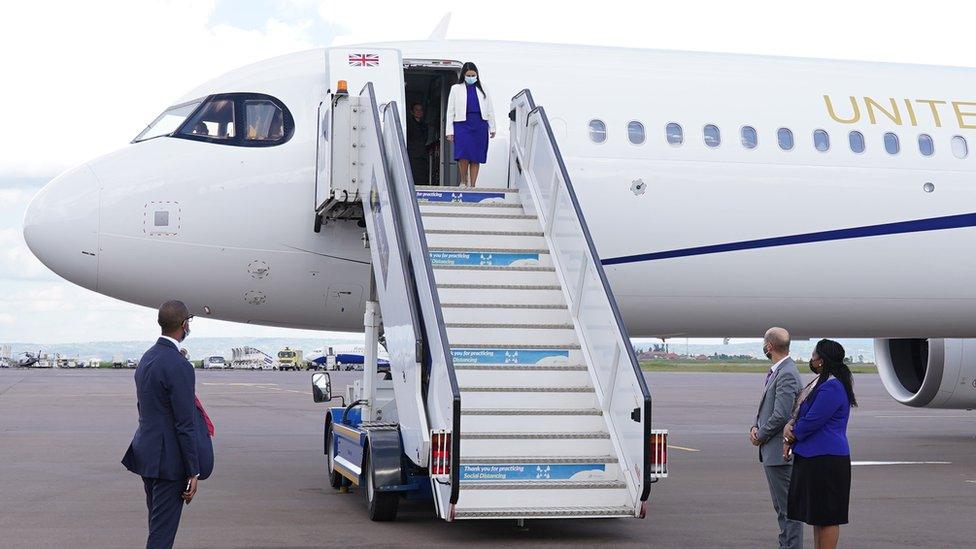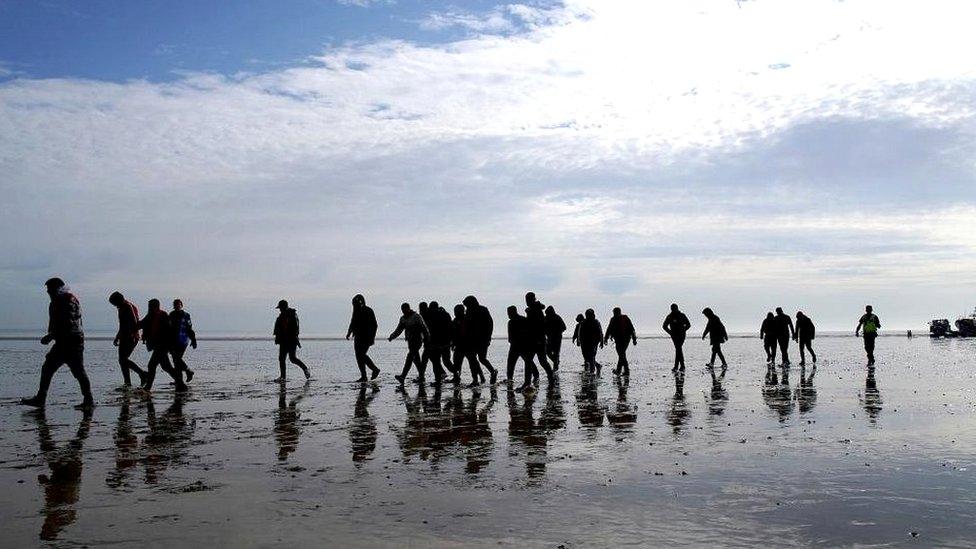Rwanda asylum system 'biased against genuine refugees' - UN
- Published

Priti Patel, then home secretary, arrives in Rwanda in April 2022
Rwanda's asylum system is so poor that it is biased against many people who could be genuine refugees, say lawyers for the United Nations' Refugee Agency.
The warning came on the second day of the UK government's appeal over its controversial plan to send some asylum seekers to the African country.
The Court of Appeal ruled the scheme unlawful in June.
But ministers say it meets the legal test for treating people humanely.
During a 16-month long battle over the government's plan to send some small boat migrants to Rwanda, evidence from the UN Refugee Agency (UNHCR) has become increasingly pivotal to whether the country meets a complex legal test of a safe country.
On Tuesday, its barristers told five Supreme Court justices there was no evidence Rwanda had improved its treatment of asylum seekers, even though it had given the British government detailed assurances of fair treatment.
The UN knew of Afghans who had been turned around at Kigali airport and sent home weeks before the UK deal had been struck in April 2022.
Laura Dubinsky KC, for the UN agency, said Syrians and Eritreans had also been expelled without considering the risks they would face.
The key institutions and practices behind those decisions were still operating despite the deal with the UK, she argued.
While ministers in Kigali may have signed the migration partnership in good faith, the security officials deciding the fate of would-be refugees followed their own rules, the court heard.
On Monday, lawyers for the home secretary told the Supreme Court Rwanda could be trusted to treat any asylum seekers sent to the country humanely.
Sir James Eadie KC told the Supreme Court there was "every reason to conclude" that Rwanda would want the arrangements to work.
He said the country had every reputational and financial incentive to treat asylum seekers well - and that even if there were genuine concerns, extensive monitoring had been put in place.
A government official would be permanently stationed in Kigali to make the deal work and also to flag concerns. There would also be further independent monitoring of what happened to each migrant, he said.
These arrangements, alongside the detailed written commitments given to the UK under the £140m scheme, meant there was no legal reason to interfere with the plan, the government argued.
Related topics
- Published9 October 2023
- Published9 October 2023
